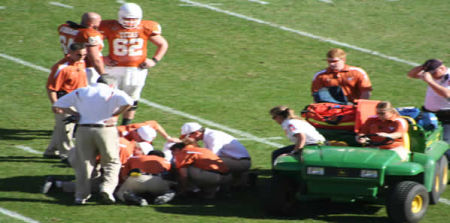Sudden cardiac death during sports has long been a source of concern for heart specialists. Cardiac arrest has been known to occur out of the blue in young, apparently healthy and athletic people.
Last week, 250 of the world’s leading specialists met in Berlin at the 6th EURO VT/VF meeting to share their experiences and discuss new approaches to diagnosis and treatment. A key focus at the symposium this year was sports and heart arrhythmias.
Professor Matthias Antz of Oldenburg, Germany presented some major differences in the ECG assessment of athletes and non-athletes. Athletes have to go through rigorous training to remain competitive and this regular, intensive training not only leads to a significantly slower heartbeat but also results in changes in the curves of the electrocardiogram. Professor Antz points out that many ECGs that appear unusual at first glance may actually be normal for athletes. However, there are clear warning signs for heart disease that should be clarified. He concludes that a thorough ECG examination is important before commencing any intensive training in order to determine suitable precautionary measures.
Professor Gaetano Thiene of the University Of Padua, Italy talked about how the introduction of routine ECG for high-performance athletes can help to prevent sudden cardiac arrest. 34,000 athletes were examined, out of which 621 were ruled out from taking part in a competitive sport based on cardiovascular problems that were identified in an ECG. These problems had not been detected in their day-to-day life. By using routine ECGs for athletes, Italian doctors have been able to reduce the risk of sudden cardiac death among young athletes by almost 90 percent.
Doctor Carsten Israel from Bielefeld, Germany declared that the general prohibition on intensive sporting activity is not justified for sports enthusiasts with an implantable cardioverter defibrillator (ICD). According to Dr. Israel, these patients are well-protected with the device and do not face any increased risk by participating in sports such as running, cycling or marathons. However, there are some sports that can compromise the ICD device or the electrodes that run through the veins, and patients should consult their doctor before participating in those sports.
Source: Newswire
Image Credit: Wikimedia Commons



























